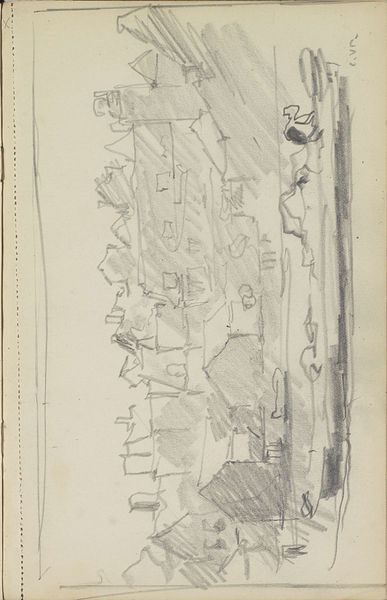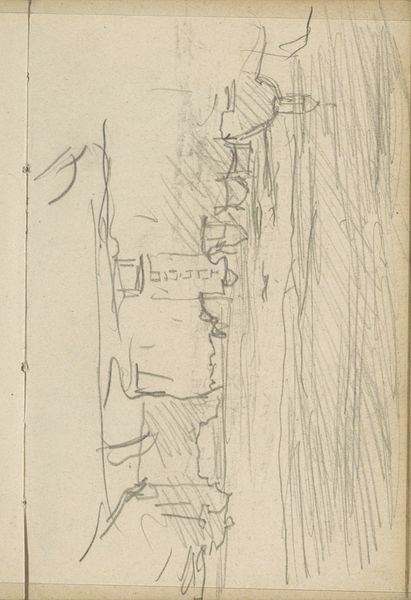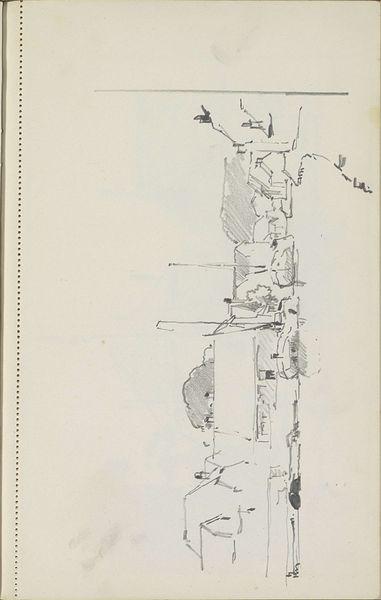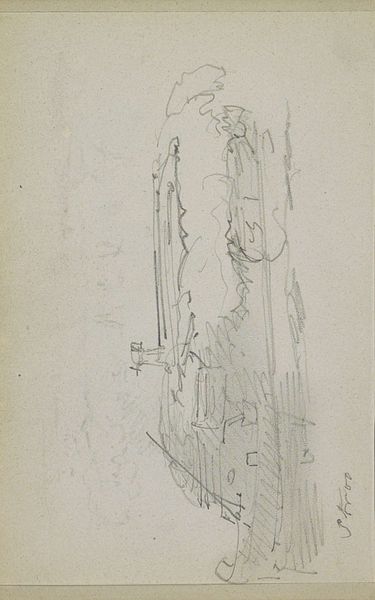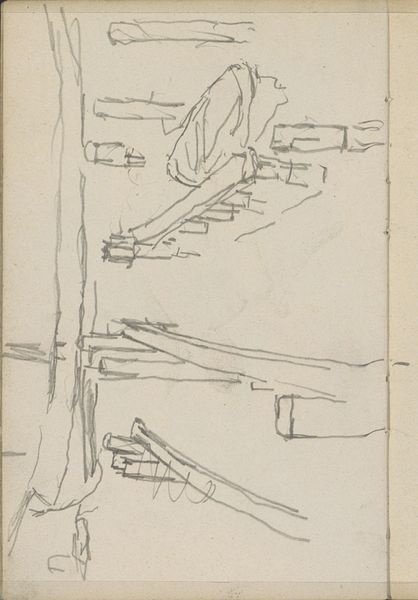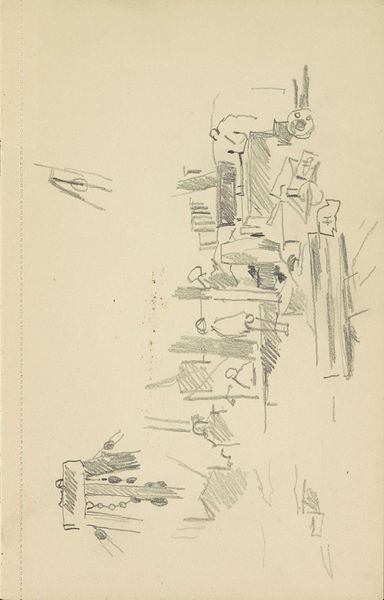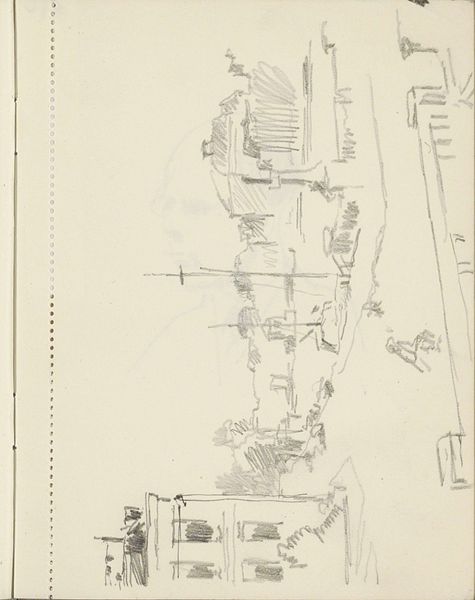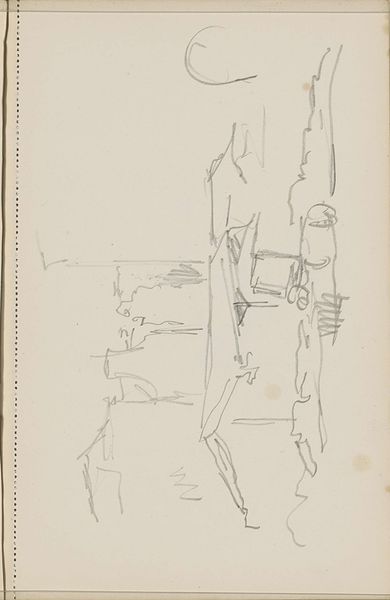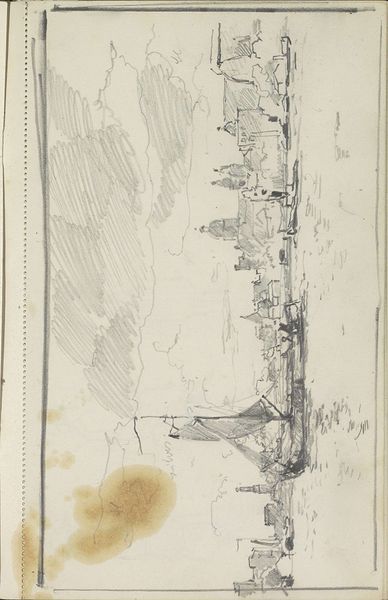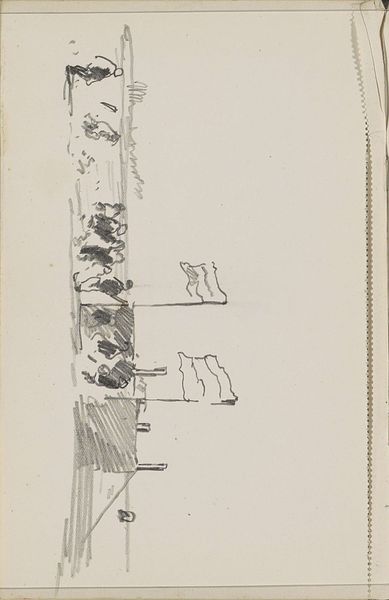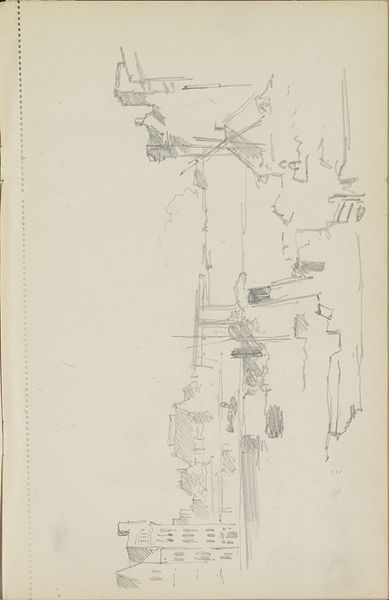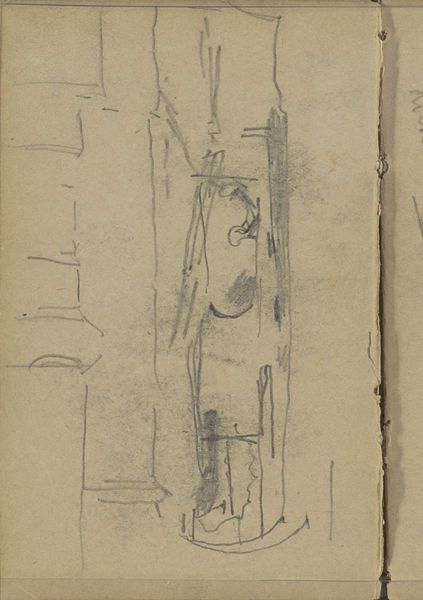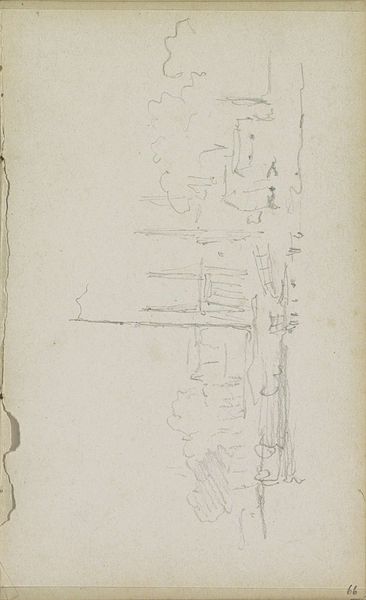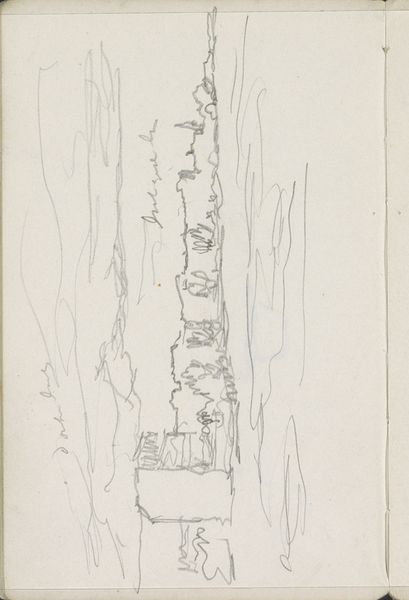
drawing, pencil
#
drawing
#
dutch-golden-age
#
impressionism
#
landscape
#
personal sketchbook
#
pencil
#
sketchbook drawing
#
sketchbook art
Copyright: Rijks Museum: Open Domain
Editor: This pencil drawing by George Hendrik Breitner, dating from 1887 to 1889, is titled "Karren op braakliggend terrein" which translates to "Carts on wasteland." It's a quick sketch, capturing what seems like several carts, possibly for hauling materials, sitting on some empty land. I’m struck by the artist's choice to depict something so seemingly mundane. What do you see in this piece? Curator: It’s mundane, yes, but that’s precisely the point. Breitner's sketch embodies a shift in artistic focus. We see a movement away from glorifying grand narratives toward observing the everyday realities of labor and urban development. These aren’t picturesque landscapes; they're sites of work. Editor: So, you’re saying Breitner is focusing on the means of production themselves? Curator: Exactly. The carts themselves, the way they're rendered, it’s less about idealizing a specific type of landscape, and more about documenting the implements people used in daily life and what these implements would suggest about how people lived. Consider also the materiality of the drawing itself: pencil on paper. Cheap, accessible. Not precious like oil paints on canvas. Breitner captures the energy in pencil – notice how he repeats his marks, finding the subject by feel. This contrasts with, say, meticulously crafted academic art. Editor: I hadn’t thought about the pencil itself as a conscious choice. It makes me think about accessibility of art making, and perhaps even a political dimension to his focus on working class objects. Curator: Precisely! By elevating the mundane to the subject of art, Breitner challenges conventional artistic hierarchies, focusing our attention to the labor, material conditions and social changes happening all around him. What appears 'unimportant' tells stories about broader production chains. Editor: That makes so much sense. Now I’m seeing the drawing not just as a quick sketch, but as a deliberate statement. Thanks, I'll be sure to consider production value in this artwork going forward.
Comments
No comments
Be the first to comment and join the conversation on the ultimate creative platform.
